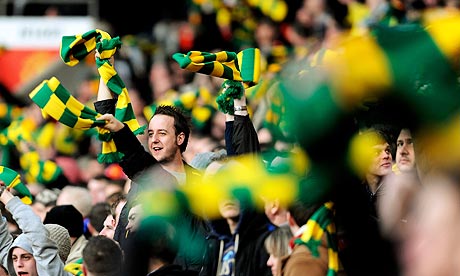Premiership football clubs in England owe more money than all the other top clubs in Europe put together, according to a study by UEFA.
The total debt of the top English clubs is 3.8bn euros (£3.4bn), 56% of the total across Europe, the report says.
It also reveals that Premiership assets of £3.8bn constitute 48% of total club wealth across Europe.
The European Club Footballing Landscape study looked at the 2007-08 accounts of all 732 clubs licensed by UEFA.
It found that the total debt of 18 Premiership clubs is about four times that of the next most indebted top-flight league, Spain's La Liga, which is 978m euros in debt. However, La Liga has assets of 2.5bn euros.
The report says most of the debt is linked to the takeovers of Manchester United, by the Glazer family, and Liverpool, by American businessmen George Gillett and Tom Hicks.
The report does not include the debts of Portsmouth or West Ham, because they were not granted UEFA licences that year owing to financial problems.
Portsmouth, which is currently bottom of the Premiership, reportedly has debts of £70m and will be deducted nine points if it enters administration on Friday.
Premiership executives have said that they will not bail out the club.
Michel Platini, UEFA president, is pushing for a system where clubs spending beyond their means will be prevented from playing in the Champions and Europa leagues
The total debt of the top English clubs is 3.8bn euros (£3.4bn), 56% of the total across Europe, the report says.
It also reveals that Premiership assets of £3.8bn constitute 48% of total club wealth across Europe.
The European Club Footballing Landscape study looked at the 2007-08 accounts of all 732 clubs licensed by UEFA.
It found that the total debt of 18 Premiership clubs is about four times that of the next most indebted top-flight league, Spain's La Liga, which is 978m euros in debt. However, La Liga has assets of 2.5bn euros.
The report says most of the debt is linked to the takeovers of Manchester United, by the Glazer family, and Liverpool, by American businessmen George Gillett and Tom Hicks.
The report does not include the debts of Portsmouth or West Ham, because they were not granted UEFA licences that year owing to financial problems.
Portsmouth, which is currently bottom of the Premiership, reportedly has debts of £70m and will be deducted nine points if it enters administration on Friday.
Premiership executives have said that they will not bail out the club.
Michel Platini, UEFA president, is pushing for a system where clubs spending beyond their means will be prevented from playing in the Champions and Europa leagues
 Manchester United fans wave yellow and green scarves at protest at the debt the Glazer family owners have saddled the club with. Photograph: Michael Regan/Getty Images
Manchester United fans wave yellow and green scarves at protest at the debt the Glazer family owners have saddled the club with. Photograph: Michael Regan/Getty Images
Comment